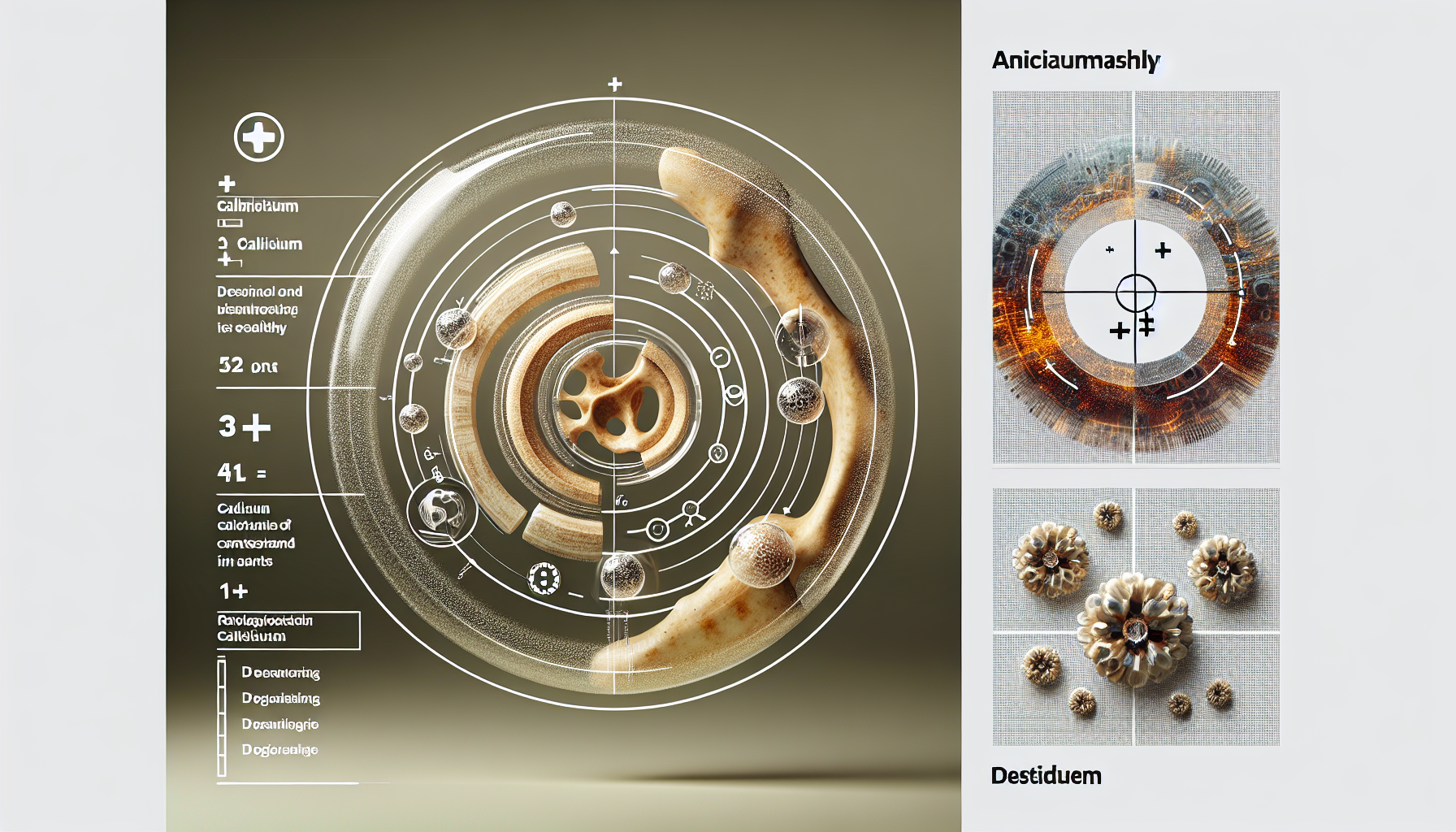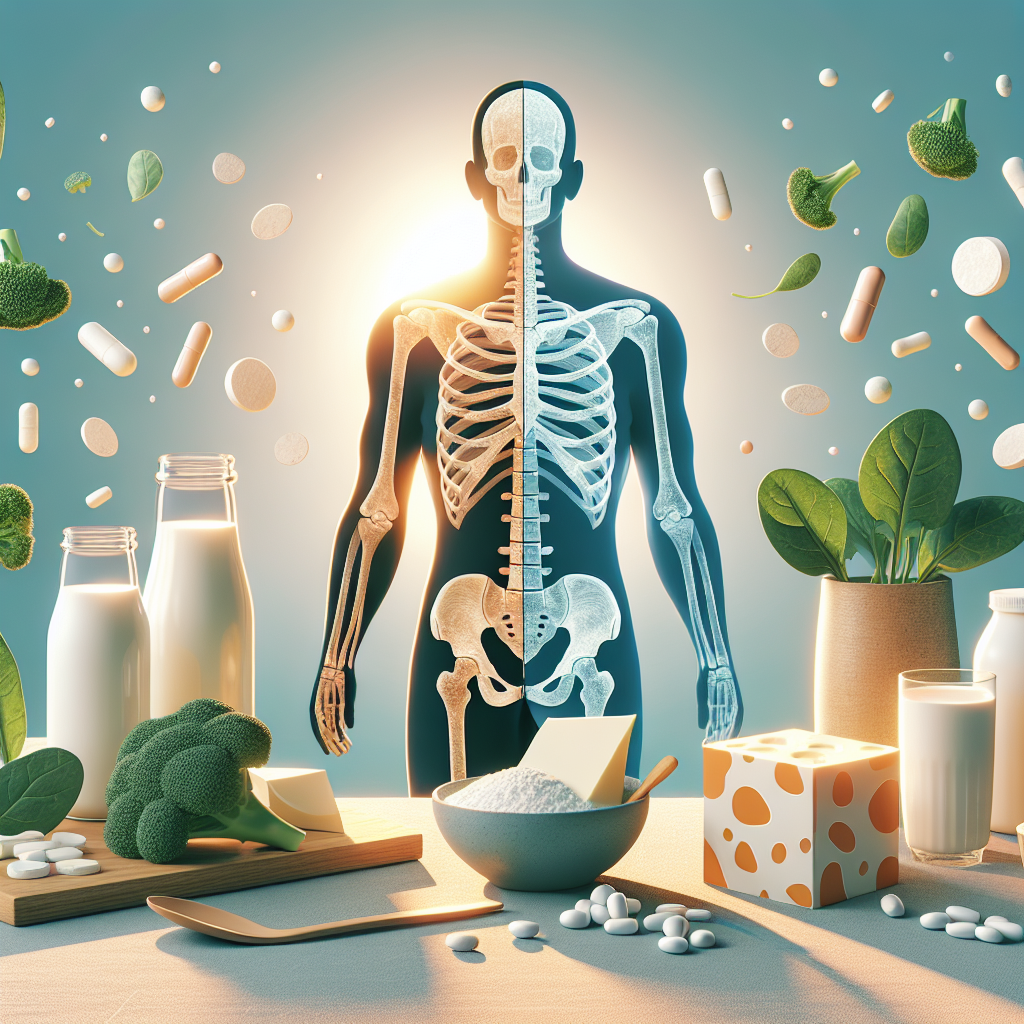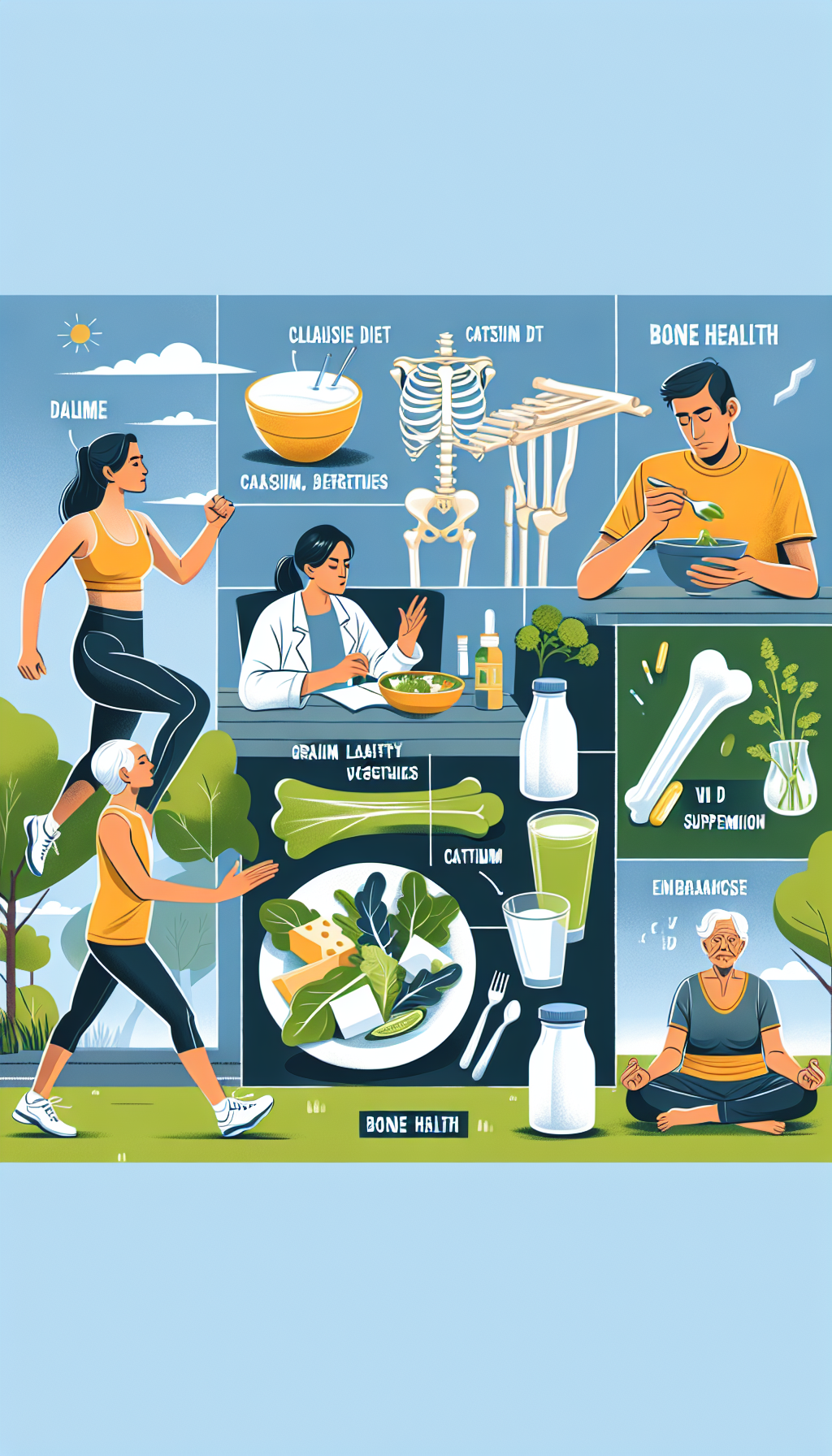Calcium is a critical mineral for maintaining bone health and strength. Unfortunately, as we age, our bones can lose calcium, leading to conditions such as osteoporosis, which makes bones brittle and more susceptible to fractures. Enhancing calcium retention in bones is a multifaceted approach, involving diet, lifestyle, and understanding the underlying physiological processes. In this comprehensive article, we’ll explore the strategies that can help maintain and improve bone density through calcium retention, ensuring a robust skeletal framework as we age.
Understanding Bone Health and Calcium Dynamics
Our bones are living tissue, constantly undergoing a process called remodeling, where old bone is broken down and new bone is formed. This process requires a steady supply of calcium, which is predominantly stored in our bones and teeth. To understand how to enhance calcium retention, it’s essential to grasp the basics of bone health, which involves a delicate balance between bone formation and resorption.
Dietary Sources of Calcium
A diet rich in calcium is the foundation for strong bones. Dairy products like milk, cheese, and yogurt are well-known sources of calcium. However, for those who are lactose intolerant or prefer plant-based diets, there are plenty of other options. Leafy green vegetables, such as kale and broccoli, almonds, and fortified foods like orange juice and cereals, also provide significant amounts of calcium.
To ensure you’re getting enough calcium in your diet, here are some additional resources:
- The National Institutes of Health’s Office of Dietary Supplements provides a detailed breakdown of calcium-rich foods and recommended daily intake (NIH Calcium).
- The International Osteoporosis Foundation has a comprehensive list of calcium sources from various food groups (IOF Calcium Sources).
The Role of Vitamin D in Calcium Absorption
Vitamin D plays a crucial role in calcium absorption and bone health. Without sufficient vitamin D, the body can’t absorb the calcium it receives, no matter how much is consumed. Sunlight exposure is a natural source of vitamin D, but for those living in areas with limited sunlight or who have to avoid sun exposure, supplements and vitamin D-rich foods can help maintain adequate levels.
For further reading on vitamin D and calcium absorption:
- The Vitamin D Council provides insights into how vitamin D works with calcium (Vitamin D Council).
- A study on the synergistic effects of vitamin D and calcium is available in the Journal of Clinical Endocrinology & Metabolism (JCEM Study).
Lifestyle Factors Influencing Calcium Retention
Exercise and Bone Density
Physical activity, especially weight-bearing and resistance exercises, is essential for building strong bones. Exercises such as walking, running, and lifting weights can stimulate the bones to retain more calcium and build more bone tissue. An informative resource on the subject is the American Bone Health organization, which offers guidance on exercises for bone health (American Bone Health Exercise).
The Impact of Smoking and Alcohol
Smoking and excessive alcohol consumption can lead to reduced calcium absorption and impaired bone health. Quitting smoking and moderating alcohol intake are crucial steps in promoting calcium retention in bones.
For more details on how lifestyle choices affect bone health, consider reading about the connection between bone density and lifestyle choices in the article "The Importance of Muscle Strength for Bone Integrity" on Avix Health (Impact of Lifestyle on Bone Health).
Hormonal Balance and Bone Health
Hormones like estrogen and testosterone have a significant impact on bone density. Hormonal imbalances, such as those occurring during menopause or due to certain medical conditions, can accelerate bone loss. Appropriate medical management of these conditions can help in maintaining bone health.
Medical Interventions and Supplements
Calcium Supplements
For those who cannot get enough calcium from their diet, supplements can be a useful tool. However, it’s important to not exceed recommended doses, as too much calcium can lead to other health problems, such as kidney stones.
Medications for Osteoporosis
In cases of osteoporosis, medications such as bisphosphonates or hormone replacement therapy can be prescribed to help increase bone density and reduce the risk of fractures.
For an in-depth look at how calcium supplements and medications can aid bone health, "Calcium-Rich Foods for Optimal Bone Health" offers additional insights (Calcium Supplements and Bone Health).
Cutting-Edge Research and Therapies
Recent advancements in medical research have led to new therapies targeting the molecular pathways involved in bone remodeling. These include monoclonal antibodies that can inhibit proteins responsible for bone resorption, potentially offering new hope for patients with severe osteoporosis.
To stay updated on the latest research in bone health, resources such as the National Osteoporosis Foundation (NOF Research) and the Osteoporosis Research Center at Creighton University (Creighton ORC) provide valuable information.
Conclusion
Enhancing calcium retention in bones is a multifaceted endeavor that requires a combination of dietary choices, lifestyle changes, and medical interventions when necessary. By understanding the role of calcium in bone health and taking proactive steps to maintain its levels, individuals can significantly reduce the risk of osteoporosis and other bone-related issues.
For those interested in exploring the impact of diet on bone health further, "Dietary Strategies to Improve Bone Mineral Density" is an excellent resource (Diet and Bone Health).
Remember that maintaining bone health is a lifelong process. Regular check-ups, a balanced diet, and an active lifestyle are your best defenses against bone loss. By keeping these strategies in mind, you can ensure that your bones remain strong and healthy for years to come.



